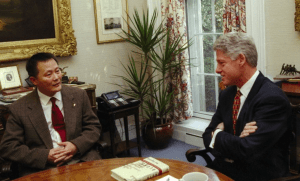Journal of Political Risk, Vol. 7, No. 5, May 2018

Source: Creative Commons via Pixabay.
Bhakti Mirchandani
Co-founder of the Global Microentrepreneurship Awards
Economic statecraft, the use of economic instruments to accomplish geopolitical objectives, dates back to the Louisiana Purchase. American Enterprise Funds, first established by USAID following the collapse of the Berlin Wall and the breakup of the Former Soviet Union, and the Tunisian American Enterprise Fund, launched in 2013, are two examples of both economic statecraft and powerful impact investing tools. This article provides a window into the Tunisian American Enterprise Fund’s investments, purpose, progress, strategy, and place in US foreign policy.


